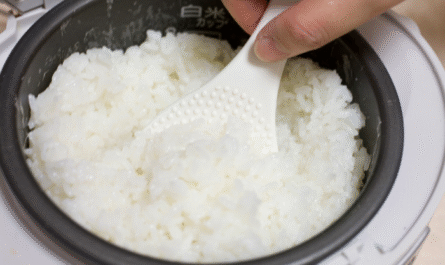Black rice, often referred to as ‘forbidden rice’, has gained popularity for its rich nutritional profile and unique flavor. However, like any food, it is important to understand the potential side effects it might have on your health. For sushi lovers and health enthusiasts alike, knowing the effects of black rice is crucial to making informed dietary choices.

What is Black Rice?
Black rice is a variety of rice that is distinguished by its dark purplish-black color. This pigmentation is due to its high levels of anthocyanins, which are antioxidants known for their health benefits. Originating from China, black rice has been cultivated for centuries and was once reserved for emperors, hence its nickname, ‘forbidden rice’.
Nutritional Benefits of Black Rice
Before diving into the side effects, it’s essential to appreciate the nutritional benefits of black rice. It is rich in iron, vitamin E, and antioxidants, which are beneficial for maintaining good health. Black rice is also a good source of dietary fiber, helping in digestion and promoting satiety.
High in Antioxidants
The anthocyanins in black rice are powerful antioxidants that help combat free radicals in the body, potentially reducing the risk of chronic diseases. They also offer anti-inflammatory properties, which can benefit overall health.
Rich in Fiber
Black rice contains more fiber than white rice, making it an excellent option for those looking to improve their digestive health. Fiber aids in digestion, prevents constipation, and may contribute to weight management by keeping you full longer.
Black Rice Side Effects
Despite its nutritional benefits, there are some potential side effects of consuming black rice that one should be aware of, especially for those who are new to incorporating it into their diet.
Allergic Reactions
Though rare, some individuals may experience allergic reactions to black rice. Symptoms may include itching, swelling, or difficulty breathing. It is important to consult with a healthcare professional if you suspect an allergy. Learn more about potential allergies here.
Digestive Issues
The high fiber content in black rice can cause digestive issues for some, especially if consumed in large quantities. Symptoms may include bloating, gas, or diarrhea. It is advisable to introduce black rice gradually into your diet to allow your digestive system to adjust.
Impact on Blood Sugar Levels
While black rice has a lower glycemic index than white rice, it can still impact blood sugar levels. People with diabetes should monitor their blood sugar levels when consuming black rice and maintain a balanced diet.
Black Rice in Culinary Uses
Black rice is not only nutritious but also versatile in the kitchen. Its nutty flavor and chewy texture make it an excellent choice for various dishes, including sushi. Learn more about its culinary uses in Italian cuisine and other creative recipes.
Black Rice and Detox Diets
Many health enthusiasts incorporate black rice into detox diets due to its high nutrient content and detoxifying properties. Its antioxidants help cleanse the body of toxins, promoting overall health. Discover more about how black rice can be a part of your detox plan here.
Potential Health Benefits Beyond Nutrition
Beyond its nutritional benefits, black rice may play a role in preventing certain health conditions. Studies suggest that the antioxidants in black rice might help in cancer prevention and reducing heart disease risks. For more insights, visit this article.
Preparing and Cooking Black Rice
Cooking black rice is straightforward, but it requires more water and a longer cooking time compared to white rice. Soak the rice for a few hours before cooking to reduce cooking time and improve texture. Enjoy it in a warm black rice soup or as a side dish with your favorite meals.
Black Rice and Sustainability
Choosing black rice over white rice can be a more sustainable option, as it often requires fewer pesticides and chemical fertilizers. Supporting sustainable agriculture helps preserve the environment and promotes healthier food systems.
Final Thoughts
While black rice offers numerous health benefits, being aware of its potential side effects is important. By understanding how your body reacts to it, you can enjoy this nutritious grain while maintaining a balanced diet. For more information on black rice’s benefits, check out this external resource.

FAQs
Is black rice suitable for everyone?
Black rice is generally safe for most people, but those with allergies or specific health conditions should consult with a healthcare provider before adding it to their diet.
Can black rice be included in a gluten-free diet?
Yes, black rice is naturally gluten-free and can be included in a gluten-free diet.
How often can I eat black rice?
Black rice can be enjoyed regularly as part of a balanced diet. However, moderation is key to avoid potential digestive issues.
This article contains affiliate links. We may earn a commission at no extra cost to you.




